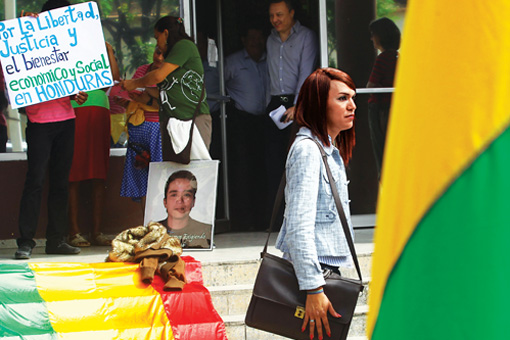During the past two decades, as transnational criminal networks have expanded their reach, violence and murder have plagued several Latin American countries. But even among those countries, Honduras stands apart. With an annual homicide rate of 85.5 murders per 100,000 inhabitants—an average of 598 a month, 20 a day, according to a 2012 study conducted by the Violence Observatory at the Honduran National Autonomous University— no place in the region is more violent.1
Watch an exclusive video interview with Carlos Lauría.
The eruption of killings, with murder rates almost doubling since 2005, has no simple explanation. Violent youth gangs, rampant corruption and widespread use of guns have long been a problem, but the presence of Mexican drug cartels that have pushed south in the past five years is considered a key factor in the upsurge of violent criminality. Also, the societal breakdown following the 2009 military-supported coup that ousted former President Manuel Zelaya incited further hostility and spawned a wave of political slayings.
No one has remained safe in such a vicious environment. Every sector of society has suffered, as the violence has spread to judges, priests, lawyers, politicians, businesspeople, and human rights activists…





